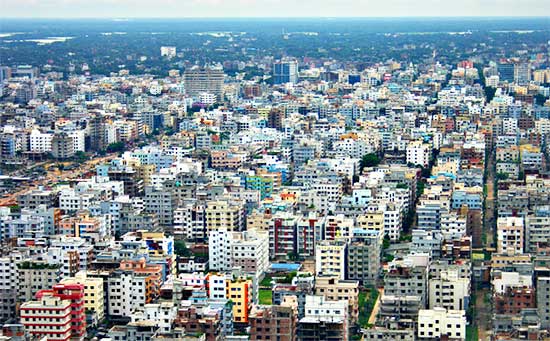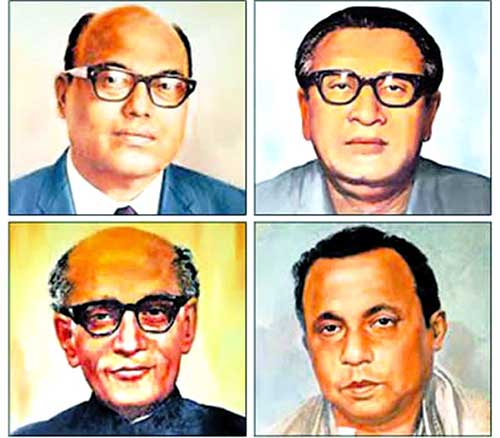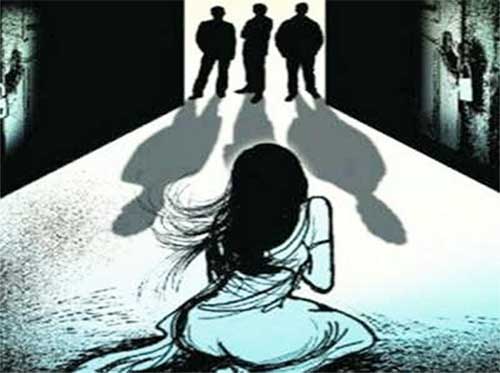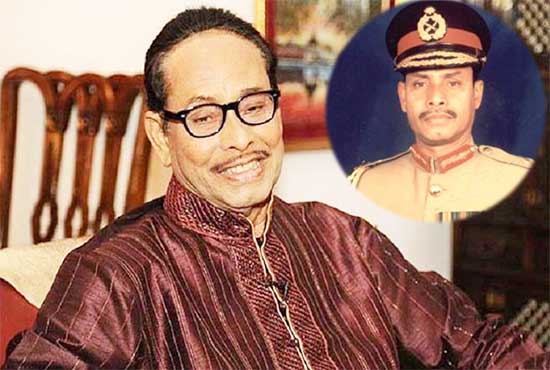
Dhaka is the capital of Bangladesh. It is the hub of the nation's industrial, commercial, cultural, educational, and political activities. This mega city is considered one of the fastest-growing cities in the world and one of the major cities in South Asia. Dhaka is estimated to have more than 12 million inhabitants, making it the ninth-largest city in the world. This city was primarily established on the banks of the Buriganga River. Dhaka city is known as the city of mosques.

The city's name came following the establishment of the temple of Dhakeshwari Temple in the 12th century. Though some historians claimed that Dhakeshwari meant the Goddess of Dhaka, the city was not named after the temple; instead, the temple must have been named after the town. The second group of historians has two opinions on naming #Dhaka. Some say the name came from a popular local musical instrument called a Dhaka; others say the name came from a tree called a Dhaka (Butte a Frondosa), which was widely found in this area.
This city is one of the oldest cities in Bangladesh. The earliest settlements in this area can be traced back to the seventh century AD. At that time, Dhaka was ruled by the Buddhist Kingdom of Kamarupa and the Pala Empire. During the Buddhist Rule, Vikrampur (Present Day Munshiganj), a city 12 miles from Dhaka, was the area's capital. Dhaka's control was passed to the Hindu Sena dynasty in the ninth century. After the fall of the Sena Dynasty in the 14th century, Dhaka's control was taken by invading Muslim rulers of Turkish and Afghan origins, which began the ruling of the Sultanate of Bengal. Sultanate of Bengal's control over this area was frequently interrupted by governors from the Delhi Sultanate.
The Sultanate of Bengal was the fall before the Mughal Empire in 1576. Mughals used Dhaka as the Mughal military base, while Chittagong was considered the central city of Bengal. However, the Mughal hand gained complete control of Dhaka until 1610. Dhaka was situated in the Bhati region, which hosted several rebel forces led by Bara Bhuiyans during that time. After the leader of the Bara-Bhuiyans, Musa Khan was subdued by Mughal General Islam Khan Chisti in 1610, Dhaka went directly under the control of the Mughals. Islam Khan Chisti transferred the Bengal capital from Rajmahal (in the Indian state of Jharkhand) to Dhaka. At that time, the name of Dhaka was changed to Jahangirnagar in honor of Mughal Emperor Jahangir. However, the name was changed back to Dhaka after the death of Jahangir. The city underwent significant developments during the Mughal period, dramatically growing population. Many mosques, forts, and educational institutions were built during that time. Muslims were excused from paying taxes, which attracted many Muslims from surrounding areas to swell up the town, transforming it into a city.
The British East India Company in 1765 gained the right to collect revenue. The East India Company gained complete control of the city in 1765 after the Battle of Plessey. The town then became known by its anglicized name, Dacca. The city's population shrunk radically during this time as the importance of Calcutta (Presently known as Kolkata) rose. Calcutta remained the capital of British India for an extended period. During the Partition of Bengal in July 1905 by the Viceroy of India, Lord Curzon, Dhaka was declared the capital of the newly established state of East Bengal and Assam. Though, Bengal was reunited in 1911.
At the end of the British Raj in 1947, Bengal was partitioned for the second time as part of the Partition of India following the formation of India and Pakistan. The Hindu-dominated West Bengal became a region of India, and Muslim-dominated East Bengal became a province of Pakistan, such as East Pakistan. Dhaka became the capital of East Pakistan. During the Partition of India, a large number of the Hindu residents of Dhaka departed for India, while the city received a significant arrival of Muslims from India. However, in the Pakistan period, Dhaka became a politically unstable city. The tensions between the two Pakistanis were gradually increasing. As the center of East Pakistan's politics, Dhaka saw an increasing number of political strikes and incidents of violence. These political crises led to the independence war in 1971 in Bangladesh. After nine months of the war, the Pakistani Army surrendered on 16 December, marking the end of the independence war of Bangladesh. Dhaka became the capital of Bangladesh.





